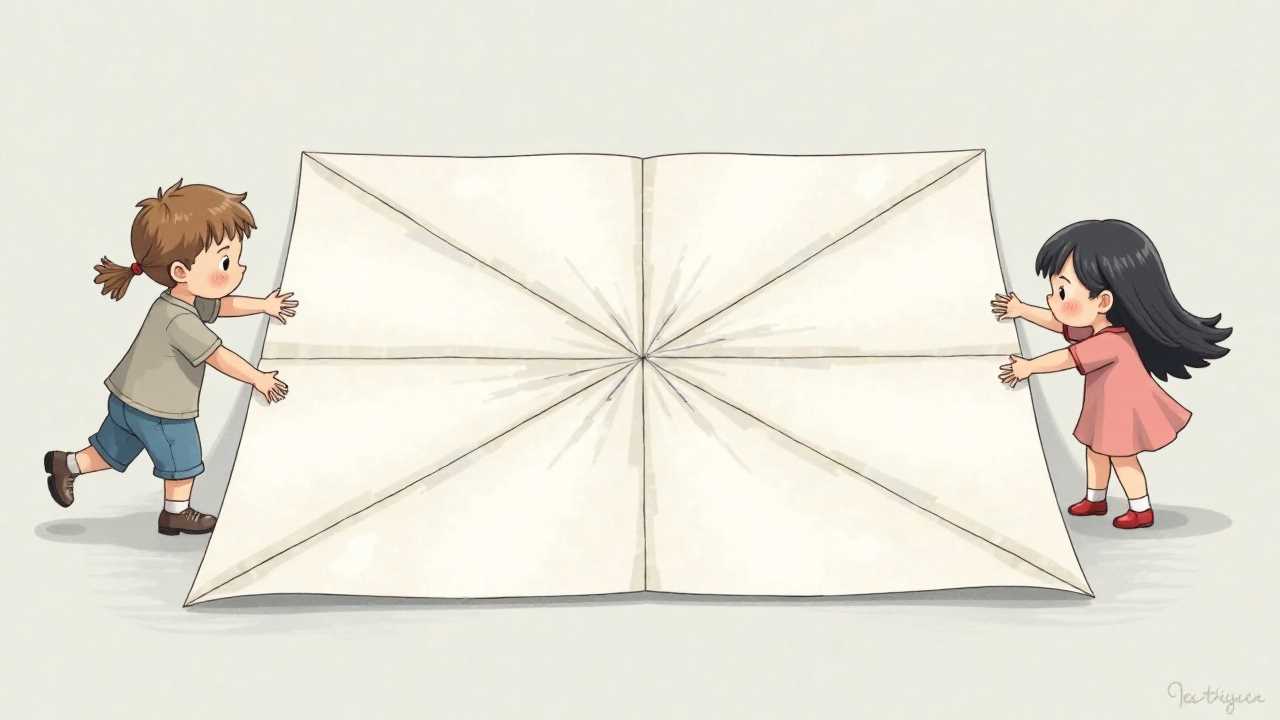
Understanding Origami and Its Benefits
Origami, the ancient Japanese art of paper folding, is not merely a craft; it is a profound practice that can significantly enhance mindfulness in children. By engaging in the intricate process of folding paper into beautiful shapes and figures, kids can experience a unique blend of creativity, focus, and relaxation. This art form encourages children to concentrate on the present moment, allowing them to escape the distractions of their busy lives.
Through origami, children learn to manipulate paper in various ways, transforming a simple sheet into a work of art. This process not only stimulates their imagination but also enhances their fine motor skills. As they fold and crease, they develop hand-eye coordination and dexterity, which are crucial for their overall development.
The Connection Between Origami and Mindfulness
Mindfulness is the practice of being fully present and engaged in the moment, free from distractions or judgment. Origami serves as an excellent tool for cultivating this state of mind. When children focus on the precise movements required to fold paper, they enter a meditative state, allowing their thoughts to settle and their creativity to flow.
The repetitive nature of folding paper can be incredibly soothing. As children engage in this activity, they often find a sense of calm and relaxation. This is particularly beneficial in today’s fast-paced world, where children may feel overwhelmed by various stimuli. By incorporating origami into their routines, we can help them develop coping mechanisms for stress and anxiety.
Encouraging Creativity Through Origami
One of the most significant advantages of origami is its ability to foster creativity. Children are encouraged to think outside the box as they explore different designs and techniques. The possibilities are endless, from simple cranes to complex dragons. This freedom to create allows children to express themselves artistically, building their confidence and self-esteem.
In addition to traditional designs, we can encourage kids to invent their own origami creations. This not only enhances their problem-solving skills but also promotes innovative thinking. By experimenting with different folds and shapes, children learn that mistakes are part of the creative process, fostering resilience and adaptability.
Enhancing Focus and Concentration
In a world filled with distractions, teaching children to focus can be challenging. Origami provides a structured activity that requires concentration and attention to detail. As children follow step-by-step instructions to create their designs, they learn the importance of patience and perseverance.
The act of folding paper demands a level of concentration that can translate into other areas of their lives. Whether it’s completing homework or participating in sports, the skills they develop through origami can enhance their overall focus and performance.
Relaxation Techniques Through Origami
Incorporating origami into relaxation routines can be incredibly beneficial for children. The process of folding paper can serve as a calming activity that helps to reduce stress and anxiety. By focusing on the task at hand, children can momentarily forget their worries and immerse themselves in the soothing rhythm of folding.
To create a relaxing environment, we can set up a dedicated space for origami activities. Soft music, comfortable seating, and a variety of colorful papers can enhance the experience. Encouraging children to take deep breaths and enjoy the process can further promote relaxation.
Getting Started with Origami for Kids
Starting with origami is simple and requires minimal materials. All you need is a few sheets of paper and some basic instructions. There are countless resources available, including books and online tutorials, that cater to various skill levels.
Begin with simple designs, such as a paper boat or a basic crane, to build confidence. As children become more comfortable with the techniques, we can introduce more complex projects. This gradual progression keeps them engaged and motivated to continue exploring the art of folding.
Incorporating Origami into Daily Life
To fully harness the benefits of origami mindfulness for kids, we can incorporate it into their daily routines. Designating a specific time each week for origami activities can create a sense of anticipation and excitement.
We can also encourage children to share their creations with family and friends. This not only fosters a sense of community but also allows them to showcase their creativity and hard work. Participating in origami workshops or classes can further enhance their skills and provide opportunities for social interaction.
The Lasting Impact of Origami Mindfulness
The practice of origami mindfulness for kids offers a multitude of benefits that extend beyond the art of folding. By fostering creativity, enhancing focus, and promoting relaxation, we equip children with valuable skills that can positively impact their lives.
As they engage in this beautiful art form, children learn to appreciate the present moment, develop resilience, and express themselves creatively. By integrating origami into their lives, we can help them cultivate a sense of mindfulness that will serve them well into adulthood.
In summary, origami is not just a fun activity; it is a powerful tool for personal growth and development. Let us encourage our children to embrace the art of folding and unlock their full potential.
 Kids Art ProjectsParty PlanningPaper CraftsOrigami for KidsPrivacy PolicyTerms And Conditions
Kids Art ProjectsParty PlanningPaper CraftsOrigami for KidsPrivacy PolicyTerms And Conditions
